Feature
Iestyn Davies: An instinct for immortal harmony
Share this
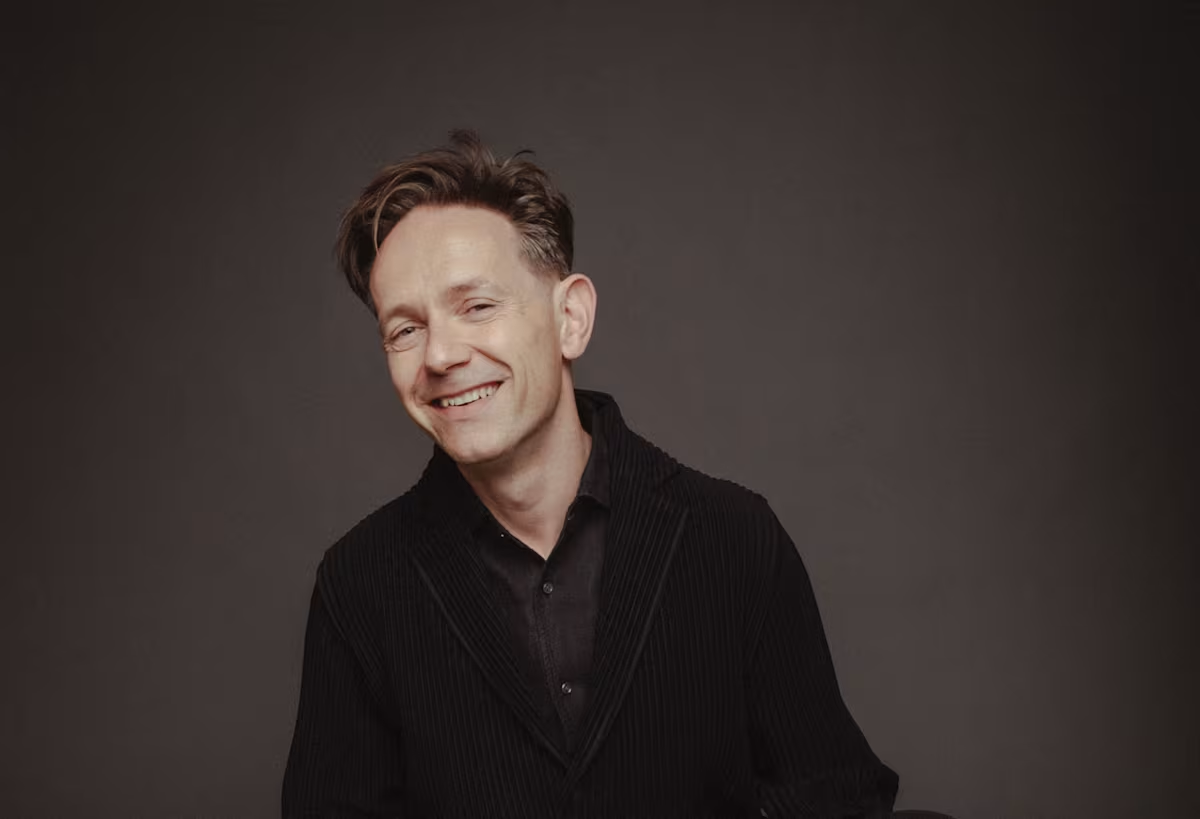
BY ASHUTOSH KHANDEKAR | FIRST PUBLISHED 19 OCT 2025
The celebrated countertenor Iestyn Davies discusses his new role as Artistic Director of the London Festival of Baroque Music, explaining how his experience as a performer has shaped his approach to programming.
This autumn, the London Festival of Baroque Music (LFBM) enters a new chapter under the artistic direction of Iestyn Davies. Best known as one of Britain’s leading countertenors, this is the first time that Davies has taken on the role of curator. His 2025 festival, held in the splendid English Baroque grandeur of Smith Square Hall, promises Bach, Purcell, Charpentier, and more. But above all, the week-long event is a reflection of Davies’ own instincts and experiences as performer and collaborator.
How did his first artistic directorship come about? ‘I was simply approached by email, and it didn’t take me long to agree,’ he says. ‘Partly because there was this miraculous hole in my diary exactly in the week that the team at Smith Square had slated for this year’s festival; between my projects in Canada and Australia. I am very lucky!’
Iestyn Davies performs 'Erbarme Dich, mein Gott' from JS Bach's St Matthew Passion (video courtesy of Academy of Ancient Music)
Davies has placed Johann Sebastian Bach firmly at the heart of his festival programming, with the theme ‘Immortal Harmony’ – the term that Beethoven used to describe Bach’s music. ‘From the very start, I felt there was almost a compulsion to include the complete Brandenburgs and the Goldbergs – they kind of “came with the job”. So my first task was to think of suitable performers. I’m happy to say my first choices in both cases replied with a strong “yes”.’
Programming Bach, he suggests, springs from the architectural solidity of St John’s Smith Square itself: ‘Rather like the columned portico of Smith Square Hall, everything is held firmly in place once you have Bach as your foundation. It’s hard not to also think of Brahms who said of Bach, “Study him… there you will find everything”.’
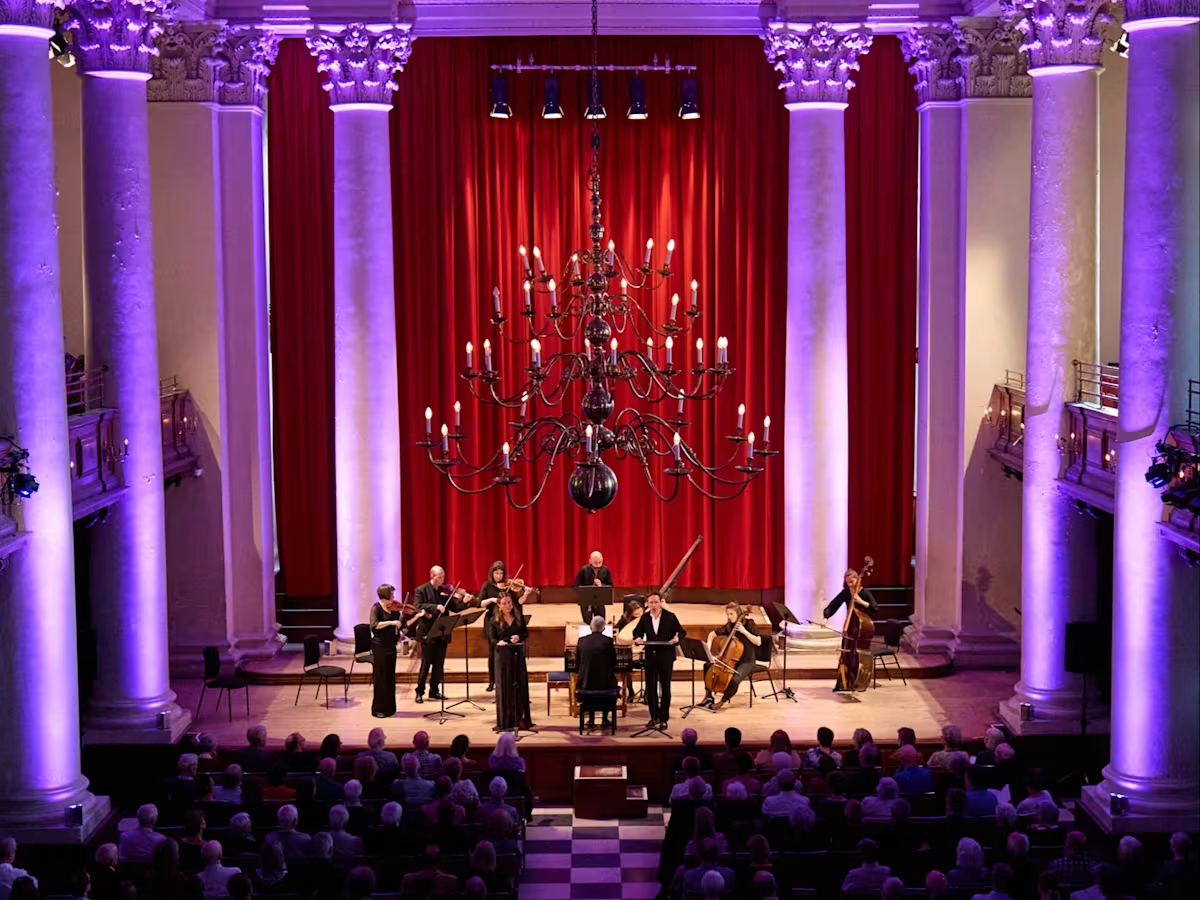
Artistic planning these days increasingly involves a juggling act between careful budgeting and creative ambition: ‘When the LFBM was sponsored by Lufthansa, there was undoubtedly greater scope for artistic liberty. Without that sort of creative sponsorship, any festival relies on private donations. So my artistic ambition for 2025 was one that had to be very creative within what is a limited financial capacity.’
Not that this has constrained Davies’ obvious flair for programming: ‘The performers I chose for this week have either stood out in their field across the globe, or have the potential to do so in future. Part of your “brand” is to rise to the occasion for the audience every time; there can’t afford to be weak spots.’
With such a specific focus on Baroque music, how has Davies ensured that the festival speaks to today’s audiences? For a start, he resists the temptation to categorise. ‘I have a slight allergy to labels in “classical music” (there’s one!). I grew up singing in St John’s College Choir in Cambridge whose repertoire spanned 400 years. At no point did I ever hear music described purely in terms of a historic period. What was drilled into us were terms like “expression”, “phrasing” and “text” – the things that communicate with listeners and make music come alive, no matter when it was written.’
So why have a Baroque music festival at all? ‘Because the music is so completely comprehensible without being simplistic. There is a naturalism to the harmony and structure that anybody, certainly in the Western world, can recognise without a formal education. I believe “Baroque music” speaks to us now just as clearly as it did in 1725. I often think of it in relation to the order of Classical architecture – a world of beautiful symmetry and comforting predictability in which the masters are able to produce the unexpected without throwing innate human responses aside.’
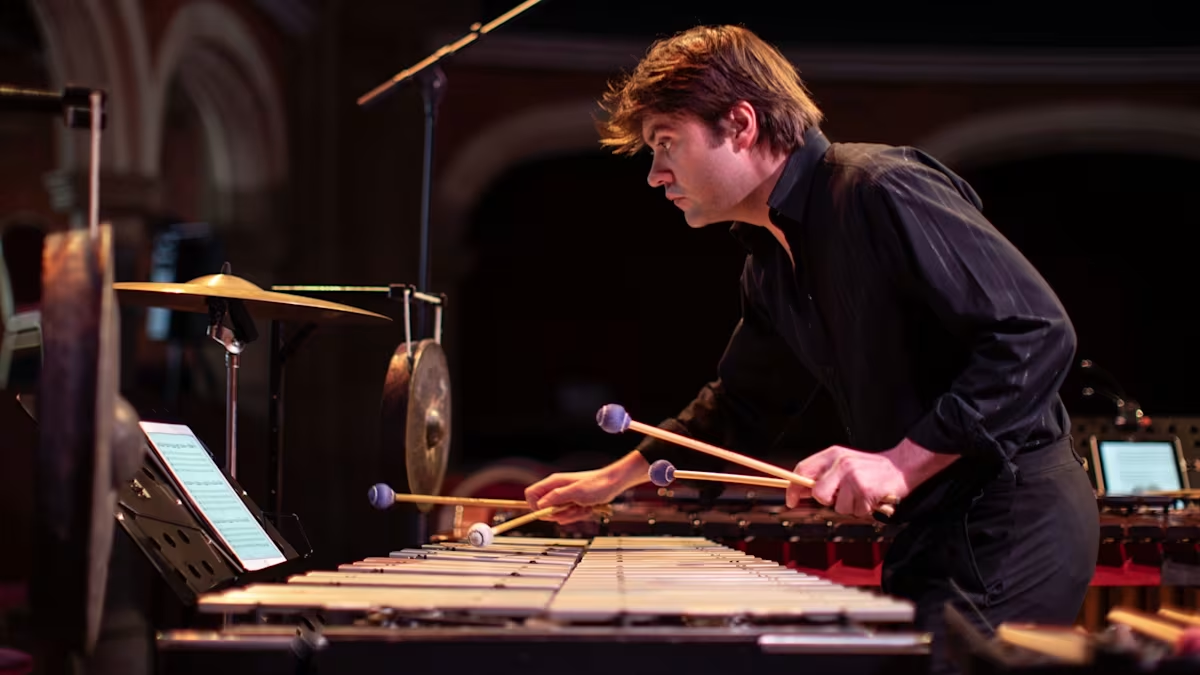
While the week-long format leaves little room for radical departures, Davies has carved out space for experiment. “Looking at the programme, there’s one date that might raise an eyebrow – the Spanish Sketches concert (6 November). We see a new commission for percussion and orchestra by James Larter, alongside music linking back to the Renaissance world of Victoria. It reminds me that Baroque music was at its conception “contemporary”, and authenticity is less about preserving the past in aspic than about adaptation.’
Among his personal highlights is the Versailles-based Ensemble Marguerite Louise. Celebrated in France, these fine period-instrument musicians make their first visit to the UK under their dynamic founder and conductor Gaétan Jarry: ‘The marriage of Purcell to Charpentier is one I adore. The simple fact of hearing French musicians play “English music” is going to be, as ever, very illuminating. Purcell’s French influence is clear to anyone well versed in the French Baroque, but this is often overlooked by British audiences, since the likes of Charpentier, Lully, Rameau and others are not as celebrated over here as they are in France.’
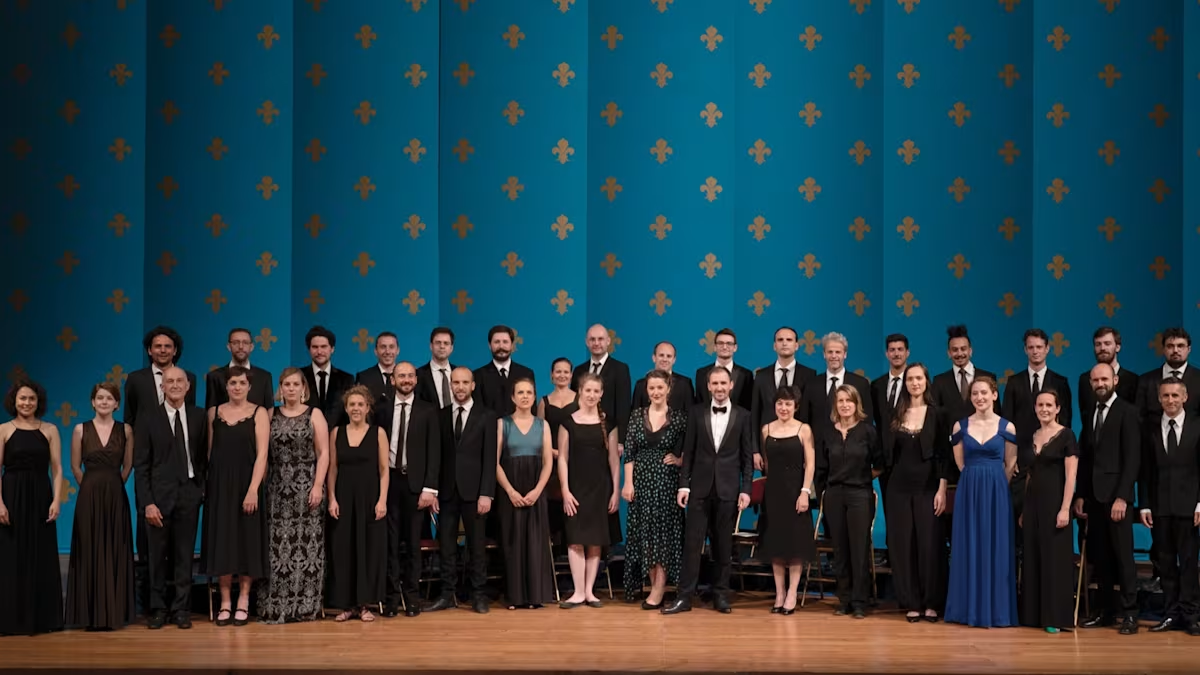
One of the most poignant events at the heart of the festival will be a celebration of Claire van Kampen’s play, 'Farinelli and the King', which Davies helped bring to life alongside the late playwright’s husband, the acclaimed actor Mark Rylance (5 November). ‘This year marks the 10th anniversary of the play’s debut at the Sam Wanamaker Playhouse, which I was part of. At its heart is a story that touches on the sense of immortal harmony: how the music of the spheres was investigated as a means to aid an ailing King.’
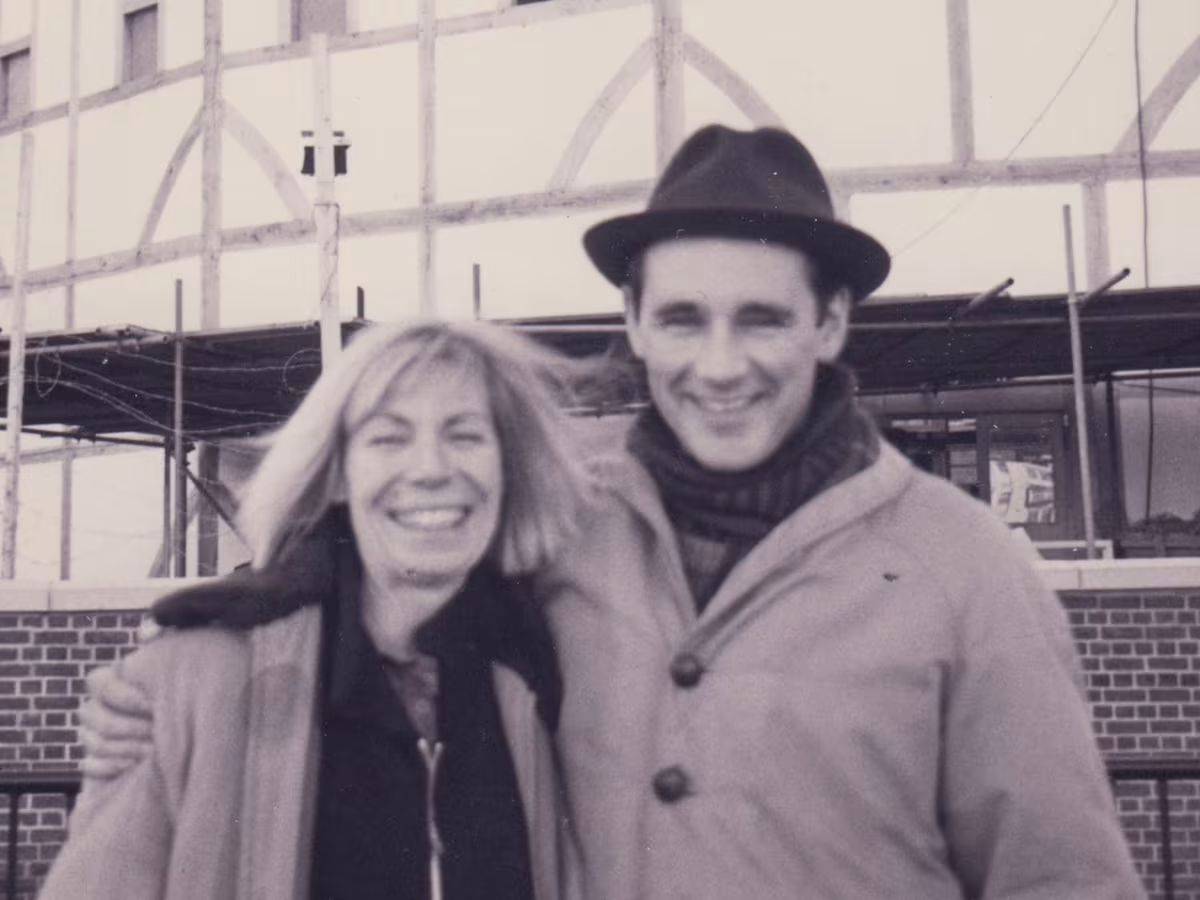
Van Kampen’s death from cancer in January 2025 gives the evening a new poignancy. ‘Mark has had a key role in the evolution of the play into a celebratory memorial to Claire and her work in general. There will be arias sung by me, our small period band reunited from the 2015 staging, and dancing, jigs and more of Claire’s compositions. I am reminded how many people came to see the play who had never stepped foot in an opera house. I am sure once again there will be a certain demographic there who will stick around for the rest of the week’s concerts as a result.’
This revisiting of successful collaborations has been an important part in Davies’ vision for LFBM. ‘I owe a great deal to Jonathan Cohen and Arcangelo, a group we formed on the back of my first ever solo album for Hyperion. It made total sense to reach out to them for the Brandenburgs (1 November). They’ve pushed the boat out and engaged some spectacular players, including international superstar recorder player, Lucie Horsch. It will be like opening a jewel box and discovering a pile of diamonds!’
Lucie Horsch & Orchestra of the Eighteenth Century | Bach Concerto BWV 1053 (arr. Frans Brüggen)
Equally close to his heart is championing new talent, such as the young Chinese-Luxembourgish organist, Tingshuo Yang (5 November), currently organ scholar at St John’s College, Cambridge: ‘I wanted to give Tingshuo this opportunity to escape the academic shackles of the Fens for an afternoon and share his amazing talents. Hopefully it will be part of the start of a long career ahead.‘
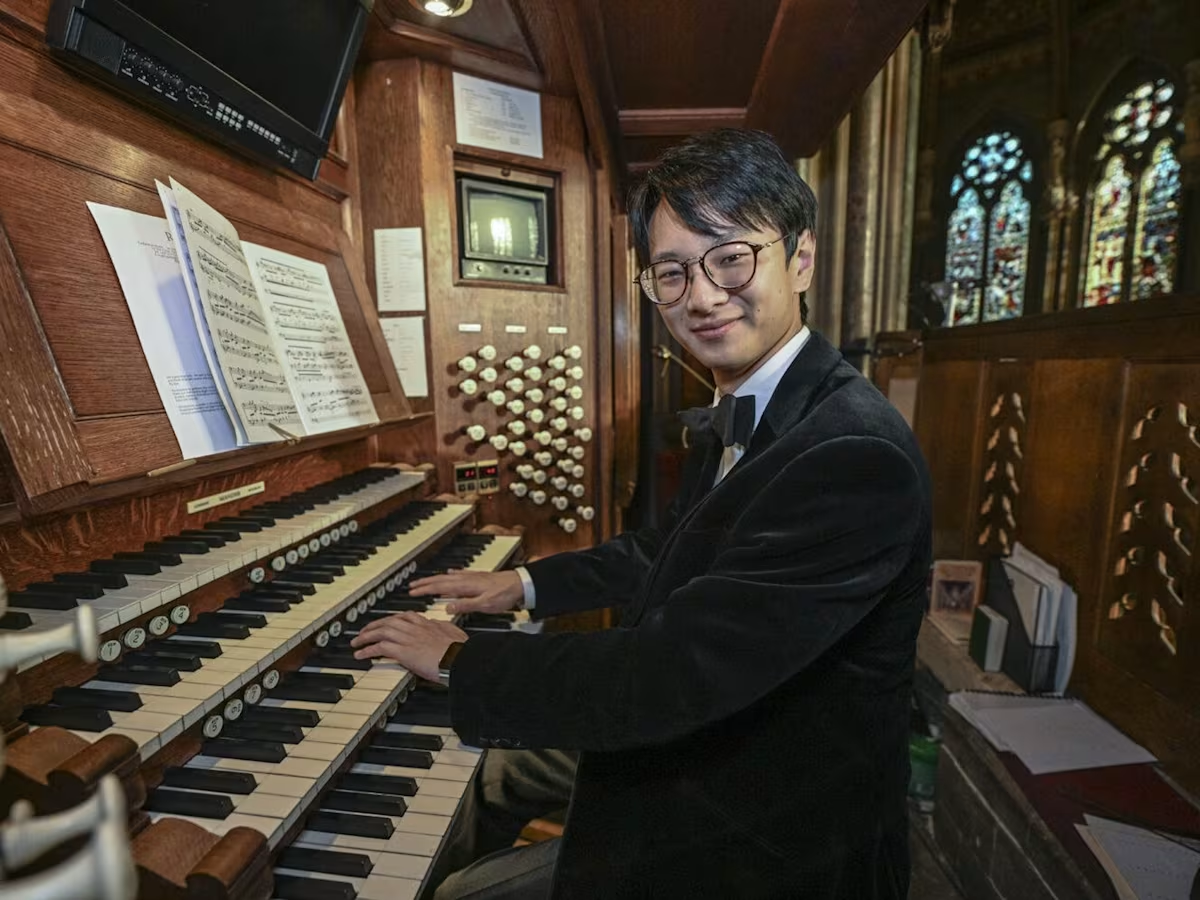
Another rising star he is championing is the Canadian mezzo-soprano, Georgia Burashko (4 November): ‘The secret to great singing (if there is one) is weighted heavily in favour of the human soul inside; that’s what our voices then are able to carry and help connect with an audience – and Georgia does this compellingly and utterly instinctively.’

Does his own instinct as a performer shape his curatorship? ‘Absolutely. Programming a recital for me is interpretation on so many different levels. I have visceral feelings about the setting and staging of a few of the concerts. Just the idea of Jean Rondeau on a platform surrounded by people playing the Goldbergs (4 November) in a spotlight was all I needed to visualise to make it happen.’
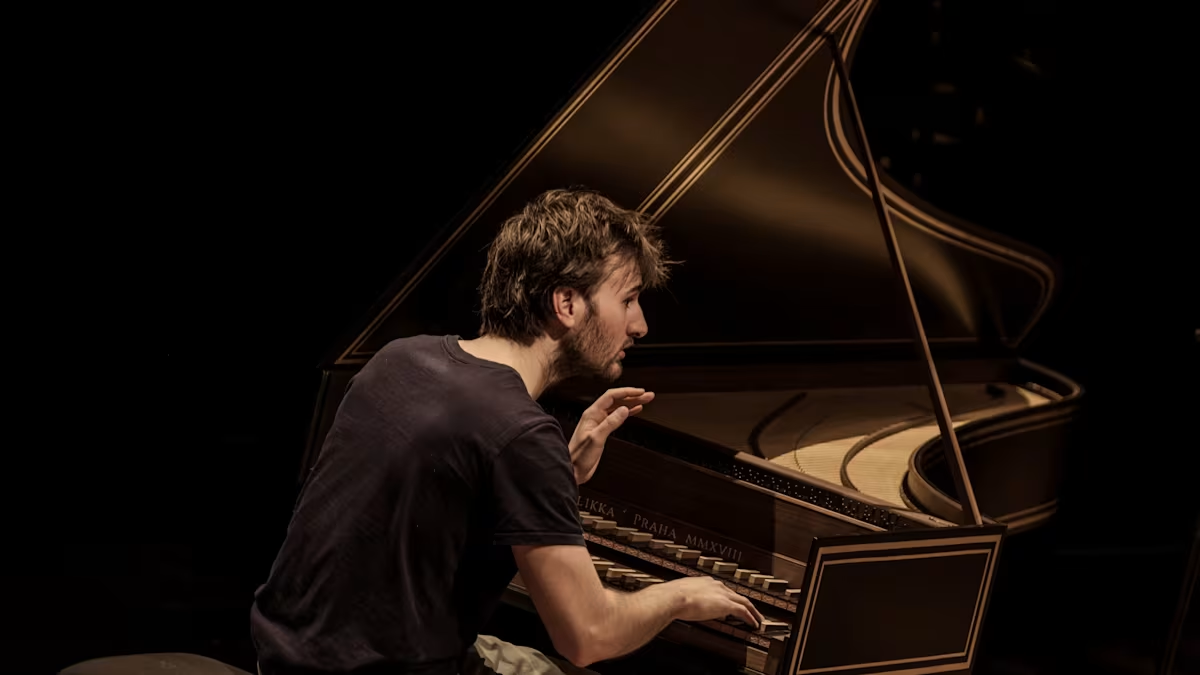
As an artistic director, Davies insists he is content to step back from his usual place as a performer in the spotlight. Will he miss the applause? ‘I anticipate feeling a complete fraud as I no doubt will have to once or twice step out and say a few words. I’m much more comfortable sharing the reaction of an audience. We are all servants, and my role as artistic director is to help facilitate great musicians sharing other people’s music. I don’t need to be applauded for any of that!’
Tickets for the London Festival of Baroque Music are selling fast. Book now to avoid disappointment.
Share this
Keep reading
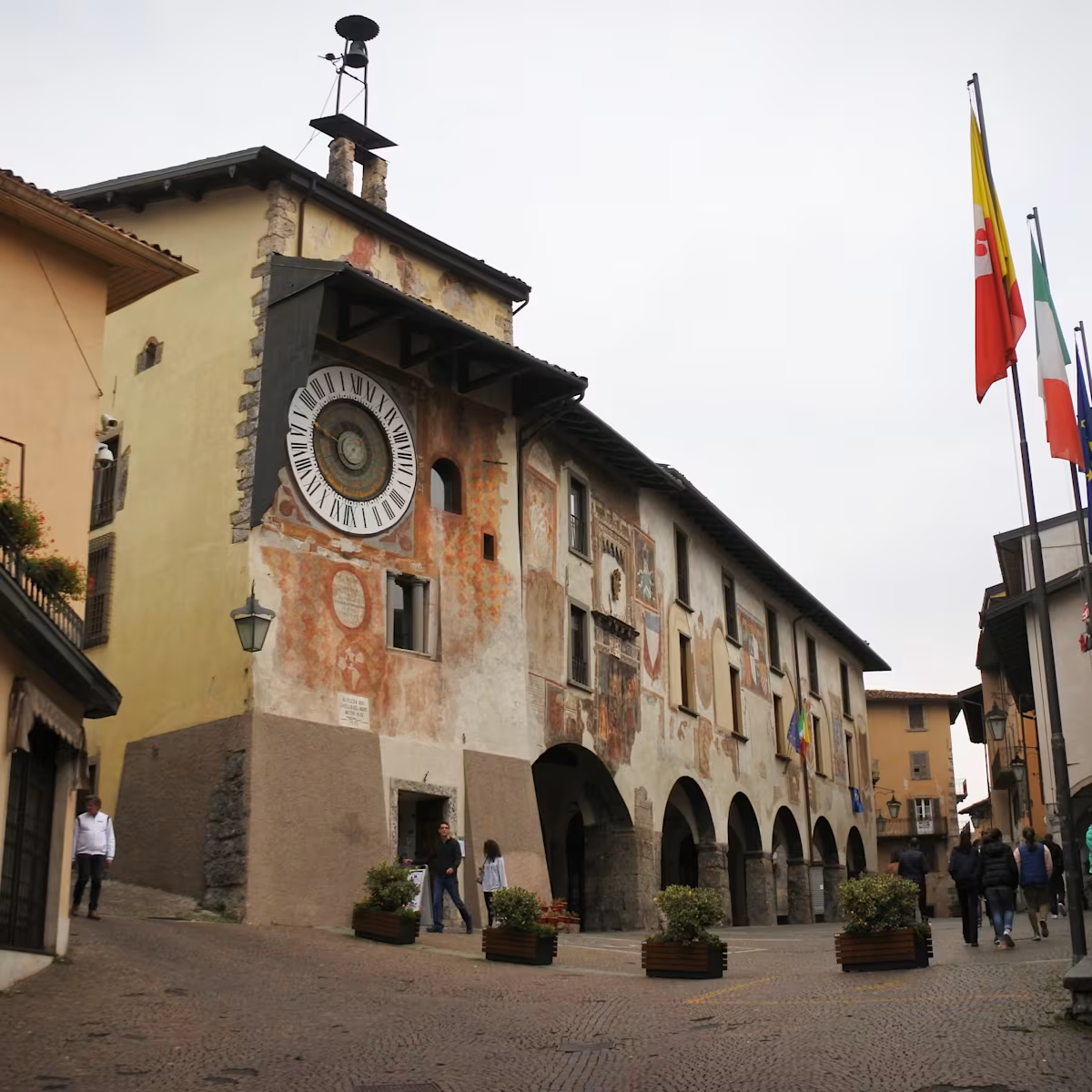
Legrenzi: A forgotten genius full of surprises
In the town of his birth, the Musica Mirabilis ‘Giovanni Legrenzi’ Festival revives the legacy of a composer who links Renaissance polyphony with Baroque drama.
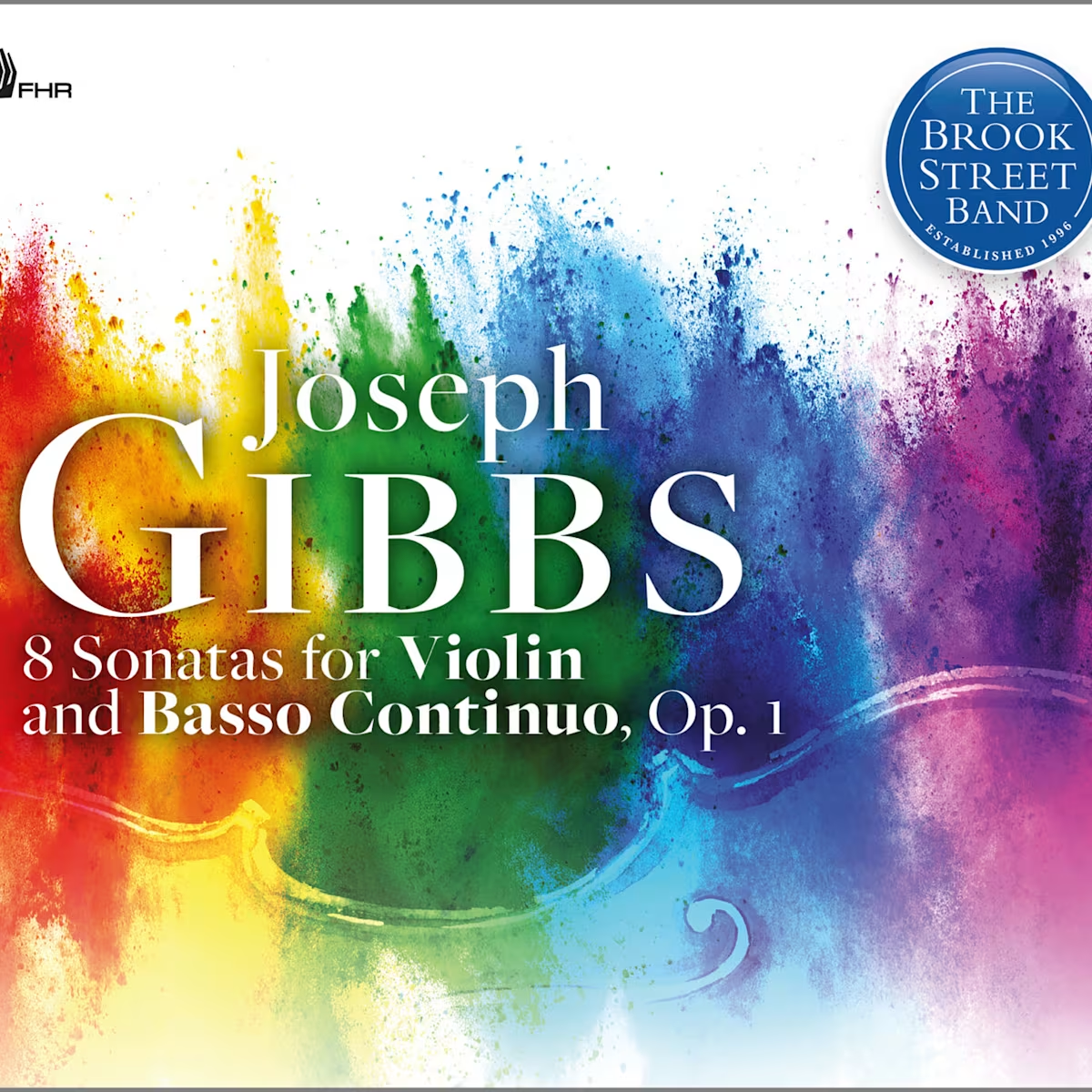
Joseph Gibbs: 8 Sonatas for violin and basso continuo, Op. 1 | The Brook Street Band
Joseph Gibbs is one of the 18th century’s best-kept secrets; his music is characterful, fusing the best of Italianate virtuosity with English and quirky humour.
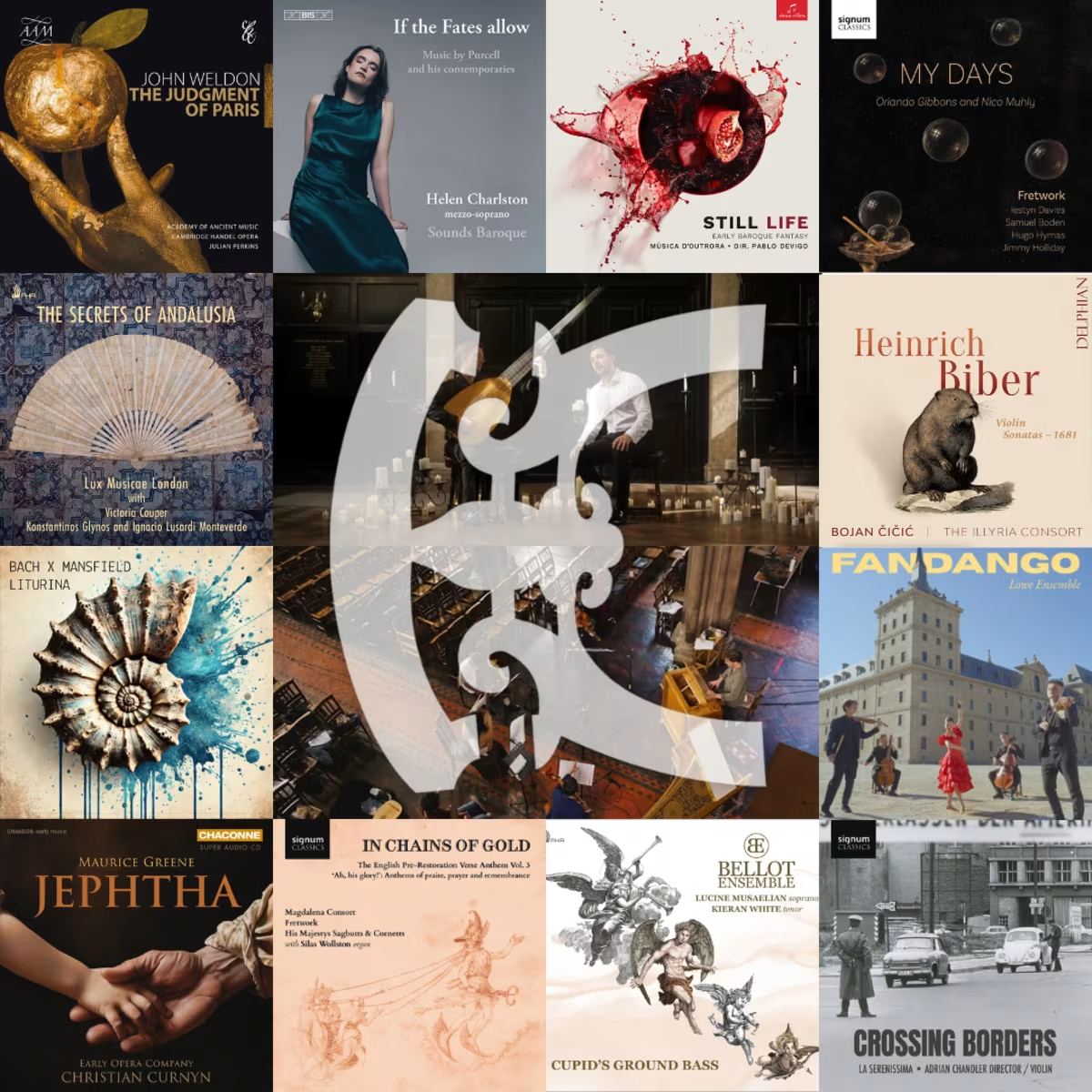
The Continuo Collection | 2025 Albums
A curated selection of tracks from the 12 recordings supported by Continuo Foundation which were released in 2025.



